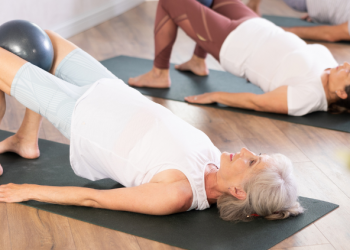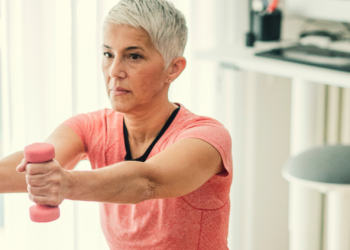Is Running Bad for Your Knees? Research Says, “No”

Many people believe running is bad for your knees, but this commonly-held belief is not backed by solid evidence. Let’s take a closer look at the research and unravel the truth behind this myth.
A recent study explored the public’s perception of running and knee joint health–the findings were surprising. Around 29 percent of the general public believed that frequent running is harmful to the knees, and a significant 54 percent thought the same about running long distances.
Interestingly, a different picture emerged when comparing these perceptions with those of healthcare providers. A greater proportion of healthcare providers actually viewed regular running as beneficial for knee health.
“Despite the prevailing beliefs, current evidence finds that recreational running is not a risk factor for knee osteoarthritis. In fact, it has been found to be quite the opposite–running can be good for your knees.” – Corey Rovzar, PhD, DPT, and postdoctoral fellow at the Stanford Prevention Research Center.
Studies have shown that recreational runners have a knee and hip osteoarthritis (OA) prevalence that is three times lower than that of sedentary non-runners. Competitive runners showed an even more impressive four-fold reduction in knee and hip OA prevalence. These results are due to the fact that regular running strengthens the muscles around the knee joint and supports overall joint health. Running also plays a vital role in maintaining healthy cartilage and bone density, which are crucial for knee function.
Considerations for Individuals With Pre-Existing Knee Conditions
If you have a pre-existing knee condition, such as knee OA, running may exacerbate symptoms because the cartilage in the knee has broken down, leaving less cushioning around the joint. Cartilage does not have the ability to regenerate and while running can maintain cartilage health, it can not bring it back once it’s gone. If you struggle with knee OA, opting for lower-impact exercises, such as walking, cycling, or swimming, is advisable. Consulting with a healthcare provider or a physical therapist can help you develop a safe and effective exercise routine that works specifically for you.
Guidance For Inexperienced Individuals
Michael Fredericson, MD, the Director of the Lifestyle Medicine Program and PM&R Sports Medicine at Stanford, cautions against taking up running after the age of fifty without prior experience. According to Dr. Fredericson, “You need to get fit to run, rather than run to get fit, and this becomes even more important after the age of 50. If you’re just starting out, begin with general conditioning that targets hip and core muscles and slowly build up your running.”
It’s time to put this myth to rest. Running is not bad for your knees; in fact, it can be healthy for them! If you do not suffer from a pre-existing knee condition and are generally fit, let’s embrace the evidence and remember that running, when done responsibly, can contribute to healthier and happier knees. So, lace up those running shoes and hit the pavement with confidence, knowing that you’re taking strides toward a stronger and more resilient you!
By: Corey Rovzar, PhD, DPT, Maya Shetty, BS, & Michael Fredericson, MD
Sources:
- Esculier J-F, Besomi M, Silva D de O, et al. Do the General Public and Health Care Professionals Think That Running Is Bad for the Knees? A Cross-sectional International Multilanguage Online Survey. Orthopaedic Journal of Sports Medicine. 2022.
- Alentorn-Geli E, Samuelsson K, Musahl V, Green CL, Bhandari M, Karlsson J. The Association of Recreational and Competitive Running With Hip and Knee Osteoarthritis: A Systematic Review and Meta-analysis. J Orthop Sports Phys Ther. 2017 Jun






















